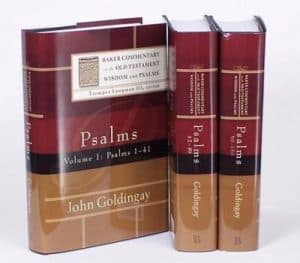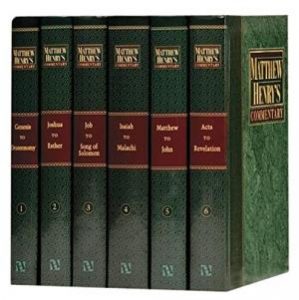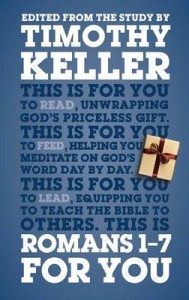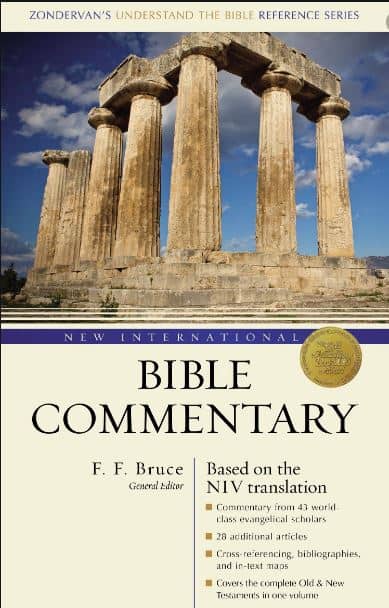Choosing a bible commentary can seem overwhelming sometimes due to the amount of options there are. All major Christian book companies publish commentaries, which results in hundreds of volumes on the market.
Some companies have even published multiple series’ as each one targets different audiences, like technical volumes for professors, ministry-focused editions for pastors, and devotional commentaries for anyone who wants to learn more about Scripture.
If a person doesn’t know what to look for when choosing a commentary, they can easily spend $50 or more on a volume that doesn’t meet their needs.
And because most people use bible commentaries as reference tools — rather than read straight through them — they may not know that the volume they purchased isn’t a good fit for them until they are looking up a particular book or passage months, or years, after their purchase.
By thinking through the tips below, it is more likely that the reader will make the right selection for their purposes, which will bless them for years to come with more knowledge of the bible.
After reading the article below, please see Best Commentaries Series: The Top 50 to browse dozens of options.
Which Bible Commentary is Right for You?
One of the primary motivations behind this website is to help people find the right bible study aids for their purposes, because that is what is going to truly increase bible knowledge exponentially in individual lives and, as a result, in local churches.
The tips below are intended to be a starting point for choosing the right commentary.
After reading through them, it is recommended that the reader visit the comparison pages -— bible commentary comparison chart -— to get details for specific volumes, such as theological perspective, reading level, author’s denomination, summary reviews, affordability, and much more.
Tip # 1:
Select a commentary according to your skill level
When a person uses a bible commentary that doesn’t match their skill level, it can lead to frustration because not much learning occurs.
For example, if someone has spent years studying the bible, an introductory-level commentary may not be as beneficial as one that has more depth.
Conversely, it’s unlikely that technical bible commentaries, which are ones that contains explanations on the original languages of the bible, will help someone that is brand new to bible reading.
Sometimes the title of an individual volume or a commentary series will reveal information about the target reader.
- On one end of the spectrum, John Goldingay’s Old Testament For Everyone series is written for those who are new to bible reading — it’s “for everyone.”
- On the other end of the spectrum, The New International Greek Testament Commentary is written for those who have been trained in New Testament Greek.
Some series’ titles, for example The New American Commentary, don’t allude to the skill level, and will require more a few more steps (see below), to determine the target audience.
The Old and New Testament commentary pages on this website provide information on the reading level for the best-reviewed volumes on each biblical book. See the page best Romans commentaries for an example.
Tip #2:
Preview the Table of Contents
Often when choosing a book, people read the summary description on the back cover, which is a good place to start.
However, when selecting a bible commentary, it’s wise to also preview the Table of Contents as well. But what exactly do you look for?

When looking at the Table of Contents, it’s important to get a sense for how many pages are devoted to each section of Scripture.
If a person is going to lead a months-long bible study on the Sermon on the Mount (i.e. Matthew chapters five through seven), and a commentary they are considering using discusses it in 15 pages, that volume may not be the best option for their specific purpose, because it’s difficult to go into significant depth, over a long period of time, in just 15 pages on three chapters in the Matthew, which cover dozens of topics.
For more please see best Matthew commentaries for a complete list.
However, if a person is looking for a devotional aid, and is considering using a Matthew commentary that discusses The Sermon on the Mount in 450 pages (yes, they exist), that volume may not be the right option for their purposes.
Instead, the commentary that discusses Matthew chapters five to seven in 15 pages might be the right commentary for them, especially if the content provides a simple overview and focuses on application.
Also in the Table of Contents, look to see what other topics may be addressed in article or essay form (sometimes they are referred to as “excurses”) or in the appendices.
A Genesis commentary may have an essay on the Creation Account or a Luke commentary may have an article on the Virgin Birth.
Readers of advanced commentaries may also want to consult the index to see what subjects are covered in the commentary, as well as the bibliography, to get a sense of what resources, including other commentaries, the author discusses and consulted.
Tip #3:
Read an excerpt from the commentary
Most websites that sell books now give their customers the opportunity to read a few pages of a commentary before buying it.
When reading examples pages, pay close attention to the skill level of the commentary by asking simple questions like, “Does this make sense to me at first reading?” and “Is the information being discussed actually what I’m looking for in a commentary?”

For instance, if a reader wants to study the relationship between Boaz and Ruth, and it’s obvious from the excerpt that the author is primarily focused on discussing the geography of Moab, another commentary may provide a better fit.
Also when reading the excerpt, note the “readability” of the comments. In addition to asking the questions above, look to see if notes and citations are provided within the sentences and paragraphs, at the bottom of each page, at the end of the chapter, or in the back for the book.
Also see best one-volume whole bible commentaries, which are great for beginners.
Many readers find in-text citations within sentences and paragraphs distracting and that they decrease “readability,” meaning they interrupt the smooth reading of the text.
In advanced commentaries with in-text citation, it’s not uncommon for citations, notes, and references, to make up 80% of the content on a single page.
Tip #4:
Preview a biblical passage you know really well
If you have access to the entire book online or in a bookstore, read through the author’s comments on a passage of the bible that you know well.
For example, are you considering a commentary on Luke? Do you have a good understanding of the Parable of the Prodigal Son? Are you familiar with the story line, the main characters, and the meaning of the parable?
Then turn to Luke 15 in the commentary and read what the author writes.
Ask questions like, “Does this teaching resonate with what I believe to be true? Is the basic message the same correct, just stated in a different way? Are there just more details? Are the applications just different?”
Answering “yes” to these questions could be a sign that this commentary is a good fit. Conversely, “Do the comments sound foreign? Does the basic message seem incorrect?” If the author’s main point is different, the details probably are, too.
Finding disagreement within the commentary on a passage that you are familiar with may be a sign that other sections of the commentary may not be good fit either.
Tip #5:
Preview a controversial passage
If you have access to the entire book, read a debated passage. For example, there are a variety of interpretations today regarding the issue of speaking in tongues.
Some readers who are interested in using a commentary on Acts or 1 Corinthians, for example, may use this topic to determine what volume is right for them.

Here is another consideration: It may be difficult to find a commentary volume in which the reader agrees with every statement the author makes on every passage. But perhaps that is not the right criteria to use.
A commentary on Acts that advocates for speaking in tongues today, or one that teaches that the gift is no longer operational, may be brilliant on Paul’s conversion in Acts 9 or the Jerusalem Council in Acts 15.
For more, please see best Acts commentaries.
Perhaps reading all commentaries with discernment is wisest approach.
Whether the author has contrary convictions on secondary matters of the faith, or the volume is written by a favorite author or published by the reader’s own denomination, carefully weighing all teaching against Scripture is best.
Admittedly, however, it may be best in some circumstance to avoid a volume altogether.
Many people have strong opinions on how to read Revelation. Even if a person reads with discernment, it’s unlikely that a premillennialist who holds a strong view on the seven-year tribulation, will benefit from a commentary whose author doesn’t hold that view and argues against it.
This is why on Best Bible Commentaries’ best Revelation commentaries page the end-times perspective of authors is mentioned.
Tip #6
Do some internet research on the publisher and author
It’s likely that if someone has published a commentary, there is information that can be found about them online. For instance, see if the author has a website, blog, faculty page, or an “about” page on a church website.
Also, look to see of the author has published any other books, and read the summaries and reader reviews about them.
You can also search for the author on YouTube, because they may have a lecture or sermon, which can tell you more about them.
Look up the publisher’s website, too. Is the publisher connected to a denomination you are comfortable with? Does it publish any books from authors that are known to you?
Tip #7
Be discerning when using online commentaries
Some free online commentaries are good and helpful to modern-day readers.
Others, however, may not be trustworthy. Most free online commentaries are in the public domain, which means they were published before 1923, before modern-day copyright laws were established.
As a result, anyone can publish them, download them, and use them for no cost.
Because these commentaries are older doesn’t make them wrong of course, but it may make some of their information dated.
Vast amounts of bible scholarship have occurred in recent years, such as the discovery of the Dead Sea Scrolls in 1948.
Recently-written commentaries, however, will often discuss these issues.
Matthew Henry’s commentaries are popular online, partly and can be accessed and downloaded for free.
For example, on Best Bible Commentaries, you can download Henry’s John commentary here and his Romans’ commentary here.
You may also be interested in the article, Matthew Henry Commentaries: Why People Love Them.
Tip #8
Seek wisdom
Ask a pastor, professor, or bible study leader what commentary series or authors they like and why. Look online to see if your church or denomination has a recommended-resources page.
There are also many websites that review bible commentaries, but be discerning when browsing reader reviews on bookstore websites because you never know if the person who posted the comments has the same convictions and purposes for reading a bible commentary as you do.
As a professor and a former pastor, when students ask me about commentaries and other study aids, I begin by asking them what their purpose is in using it.
Then I ask a few questions about what study tools, if any, they use regularly and if they find that tool easy to understand or complex. This helps me narrow down my suggestions.
I follow-up with students when I can because I want know what decision they made and why, which helps me advise the next person who comes to me with a question.
Also see:
Please see the Bible Commentaries Comparison Chart that contrasts 65 different series and provides information on what makes them different from one another.
Also see the One-Volume Whole Bible Comparison Chart that contrasts 50 different one-volume commentaries. A one-volume commentary is a book that contains brief comments on every book in the bible.
Recent Posts
David Jeremiah, a renowned pastor, author, and speaker, has captivated the hearts of many with his compelling sermons. His messages resonate deeply with diverse audiences, leaving an enduring...
Tim Keller, a distinguished pastor, theologian, and author, has garnered a devoted following through the profound impact of his sermons. In this article, we will explore seven compelling reasons...

